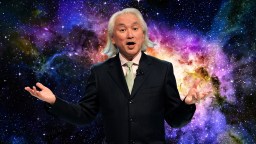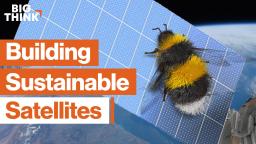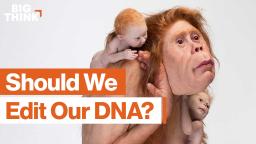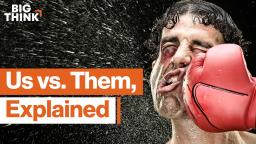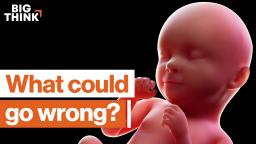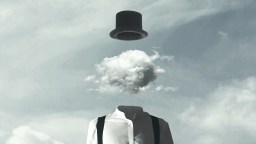science
Can one equation unite all of physics?
▸
6 min
—
with
Today, it’s common knowledge, but it took scientists centuries to figure out.
Science journals may be lowering their standards to publish studies with eye-grabbing — but probably incorrect — results.
It’s time to rethink how satellites and other objects are made and eventually destroyed.
▸
5 min
—
with
“The question is which are okay, which are not okay.”
▸
14 min
—
with
A team of scientists managed to install onto a smartphone a spectrometer that’s capable of identifying specific molecules — with cheap parts you can buy online.
Humans may have evolved to be tribalistic. Is that a bad thing?
▸
17 min
—
with
Regularities, which we associate with laws of nature, require an explanation.
Reductionism offers a narrow view of the Universe that fails to explain reality.
Healthy people need healthy microbiomes from an early age.
Scientists believe they have the answer, but philosophers prove them wrong.
It is impossible for science to arrive at ultimate truths, but functional truths are good enough.
A recent study of Iceland’s Krafla volcanic caldera suggests hidden magma pools may be lurking under many of the world’s volcanic systems.
The potential of CRISPR technology is incredible, but the threats are too serious to ignore.
▸
14 min
—
with
Satellite imagery can help better predict volcanic eruptions by monitoring changes in surface temperature near volcanoes.
Snakes and mammals share common genetic building blocks necessary for producing venom.
The Field Medal was created to elevate promising mathematicians from underrepresented demographics. But has it followed through on that goal?
Awareness of one’s own heartbeat has some positive effects.
The retraction crisis has morphed into a citation crisis.
A new model of the Antikythera mechanism reveals a “creation of genius.”
Philosophers, theoretical physicists, psychologists, and others consider what or who is really in control.
▸
19 min
—
with
75 years after Erwin Schrödinger’s prescient description of something like DNA, we still don’t know the “laws of life.”
Two new studies examine ways we could engineer human wormhole travel.
Spirituality can be an uncomfortable word for atheists. But does it deserve the antagonism that it gets?
Circle spoofing is an advanced form of GPS manipulation – but nobody knows exactly how, or why.
Here’s what Einstein meant when he spoke of cosmic dice and the “secrets of the Ancient One”.
“Don’t tread on me” is a slogan of the deep sea, too.
NASA astronomer Michelle Thaller is coming back to Big Think’s studio soon to answer YOUR questions! Here’s all you need to know to submit your science-related inquiries.
Topologists can’t tell donuts from coffee mugs, but their maps are revelatory nonetheless.
Cotton mask fibers prove 33 percent more effective at blocking viruses in trials.
